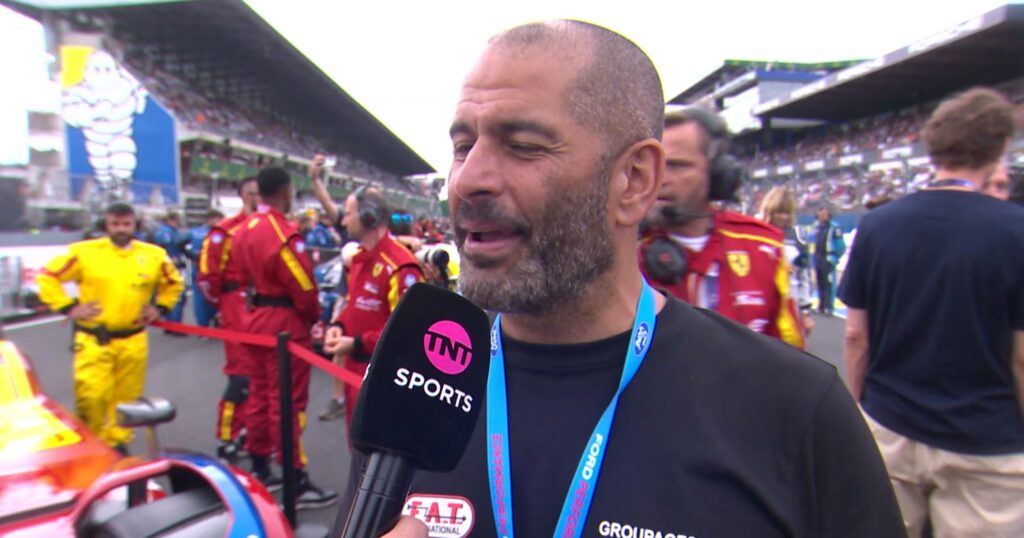In a candid revelation, Chris Harris, the former co-host of the renowned automobile program “Top Gear,” expressed his feelings of inadequacy in the face of the exhilarating world of Le Mans racing. In a recent interview, Harris articulated his admiration for the dynamic and intense nature of this prestigious endurance event, acknowledging how overwhelming it can feel to be a part of such a high-caliber sport. The Le Mans race is known for its grueling demands on both the machines and the drivers, often pushing the limits of what is considered possible in motorsport.
Harris, who has carved out a respected niche in the automotive industry through his insightful commentary and extensive driving experience, seems to grapple with feelings of what many refer to as ‘imposter syndrome.’ This psychological phenomenon, where one doubts their own accomplishments and fears being exposed as a fraud, is not uncommon, especially in environments filled with elite competitors. “I feel like a total imposter,” Harris confessed, a statement that resonates with many who are thrust into the limelight of extraordinary talents and intense competition.
The allure of Le Mans lies not only in the technicality of the racecars but also in the unpredictable and often chaotic conditions under which the event takes place. The race, which spans 24 hours, challenges drivers and teams to maintain peak performance amidst extreme fatigue, mechanical failure, and fluctuating weather conditions. Harris described the experience as “unhinged,” an apt depiction of the excitement, unpredictability, and sheer adrenaline that characterizes this iconic race.
Le Mans, officially known as the 24 Hours of Le Mans, is one of the cornerstones of motorsport, with a storied history that dates back to 1923. It attracts elite racing teams and drivers from all around the globe, each eager to etch their names into the annals of racing history. With the various classes of cars competing simultaneously, the race can resemble a carefully orchestrated dance, albeit one that is frequently disrupted by crashes, breakdowns, and tactical decisions made in real-time. This chaotic interplay of speed, strategy, and endurance is what makes these races so compelling, not just for participants but also for scores of fans worldwide.
Harris, known for his articulate automotive reviews and insights, noted that each participant in the Le Mans event brings their unique blend of skills and experience, contributing to a highly charged atmosphere. This diversity includes seasoned veterans and daring newcomers alike, all of whom bring their own backgrounds into a melting pot of raw talent and strategic acumen. Harris confessed that every time he watches these drivers operate at the edge of their abilities, it fuels his awe and admiration, further exacerbating his feelings of self-doubt.
In light of this, Harris also emphasized the invaluable lessons that can be drawn from watching elite motorsport. Observing how top drivers handle pressure, make split-second decisions, and maintain focus over extended periods provides insight into not just racing but discipline applicable in various spheres of life. The courage and determination exhibited by the competitors is a reminder that greatness often lies just beyond comfort zones, encouraging both fans and aspiring racers to push their own boundaries.
Ultimately, Chris Harris’s reflections serve as a poignant reminder of the complexities of human emotion amid the exhilarating world of motorsport. His admission of feeling like an imposter speaks to the universal struggle of self-worth in competitive environments. Meanwhile, the thrilling backdrop of Le Mans offers a canvas of unimaginable achievements, set against the backdrop of recreation, perseverance, and the relentless pursuit of excellence. Harris’s perspective reinforces the notion that even those most entrenched in a passion may occasionally wrestle with self-doubt, an experience that can be both humbling and motivating in equal measure.



